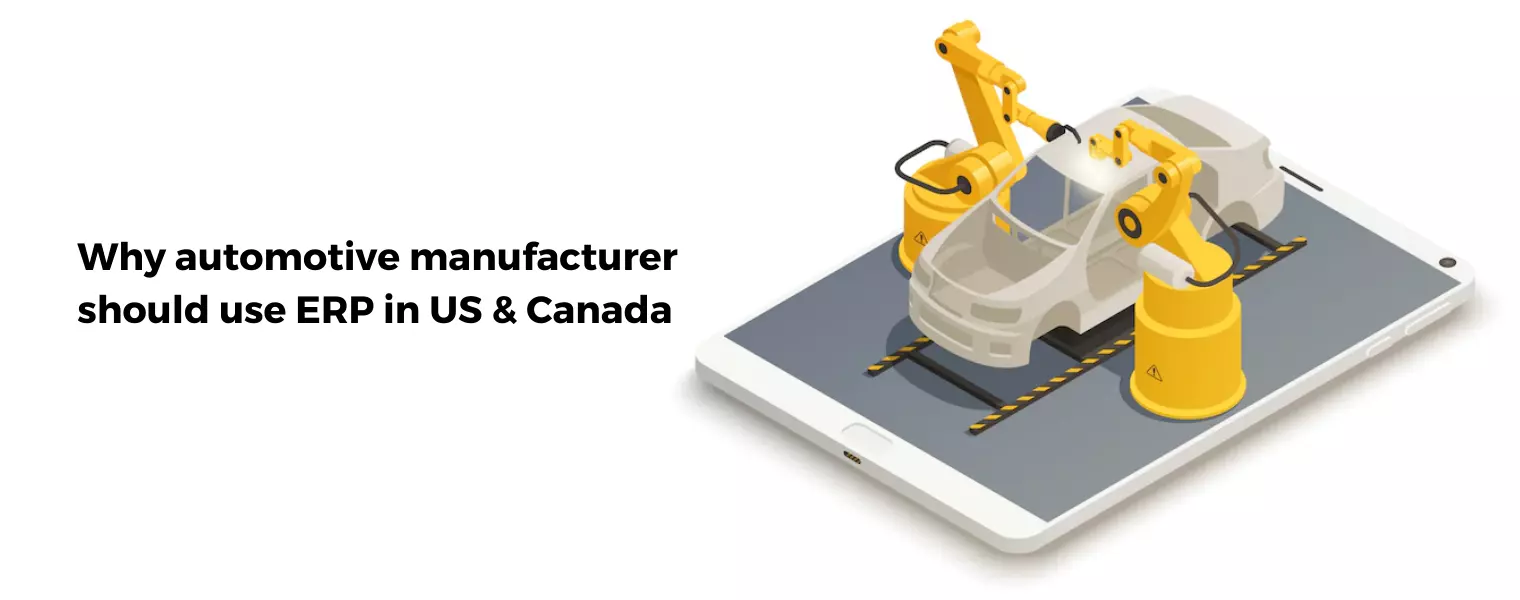
Automobile ERP systems are being increasingly adopted by manufacturers to meet the rising demand for electric vehicles, autonomous cars, and connected mobility solutions. These advanced software solutions not only enhance operational efficiency and cut down expenses but also provide crucial data-driven insights. Let's explore how contemporary automotive ERP solutions are enabling manufacturers to effectively manage the challenges posed by this evolving industry landscape.
Today's ever-changing automotive industry requires manufacturers to continuously innovate and adjust. Cutting-edge ERP systems play a crucial role in this process, serving as a central hub that optimizes the flow of information throughout the entire company.
Imagine a unified system that consolidates up-to-the-minute information on various aspects such as customer preferences, resource availability, and manufacturing status. This is the impact of Automotive ERP. It equips leaders with the necessary knowledge to respond promptly and make well-informed decisions. Say goodbye to isolated data and the struggle to stay updated. ERP offers a reliable, centralized database that is easily accessible and controllable by all involved parties.
Modern automotive ERP ensures the security of your sensitive information, including HR policies and quality control reports, by offering granular access controls, encryption, and audit trails. Cloud storage provides an additional layer of protection through automatic backups, regular updates, and the expertise of top security providers. This comprehensive approach guarantees compliance with industry regulations and allows you to concentrate on driving your business forward.
In the current era of collaborative business practices, isolated data poses a significant risk. Contemporary Automotive ERP Systems eliminate these barriers, enabling smooth communication between different departments. Imagine a system where production teams can instantly exchange information with quality control, procurement can predict requirements using sales projections, and HR can monitor talent growth throughout the company. This level of transparency equips all individuals with the necessary data to make informed decisions and enhance collaboration. It's akin to having a centralized repository of accurate information accessible to authorized personnel, providing management with a comprehensive overview of all departments, from production facilities to the warehouse.
ERP developers have a deep understanding of the automotive industry's stringent quality standards. Smart ERP offers precise labelling features, including AQL (accepted quality level) and RQL (rejected level), guaranteeing compliance with quality criteria. Through monitoring sample frequencies, identifying production defects, and implementing the quality plan, automotive manufacturers can promptly address any issues that arise.
Excess inventory can lead to unnecessary costs, while running out of stock can result in customer dissatisfaction. Efficient management of inventory and warehouse operations is crucial in the automotive industry. Automotive ERP Systems in the US and Canada simplifies tasks such as report generation, warehouse transfers, inventory tracking, and plant floor operations.
Automatically generate delivery notes and invoices using electronically generated reports and sheets, eliminating the need for manual input. This streamlined process not only saves money, time, and effort but also minimizes errors.
Successful automotive manufacturers in the US and Canada require a strong ERP system with extensive functionality to make quick decisions. DoFort automotive ERP software's Quality Control module is specifically designed to enhance quality assurance processes and generate reports. It manages receiving, delivery inspections, bin management, quality control, and a Material Review Board, enabling swift decisions on quality issues. Meeting quality requirements and delivering products on time leads to customer satisfaction.
Content employees are more productive. Implementing an ERP system can streamline processes and reduce duplicate data entry, leading to increased employee satisfaction and productivity. Additionally, data can be easily accessed on mobile devices, enabling employees to work remotely.
The top ERP solution for the automotive sector in the US and Canada promotes lean manufacturing and aids companies in establishing a lean supply chain, leading to efficient resource utilization, reduced lead times, and minimized waste. By assigning tasks to the appropriate individuals, optimal outcomes can be achieved. Automotive ERP software enables the alignment of skills with machinery on the production floor.
The automotive sector is rapidly moving towards electric vehicles, self-driving cars, and connected mobility. Automotive ERP plays a crucial role in enhancing efficiency by streamlining data, ensuring information security, promoting collaboration, and optimizing various processes such as inventory management and quality control. By utilizing automotive ERP, manufacturers can effectively adapt to the changing industry landscape and drive long-lasting success. Contact us
Welcome to DoFort !